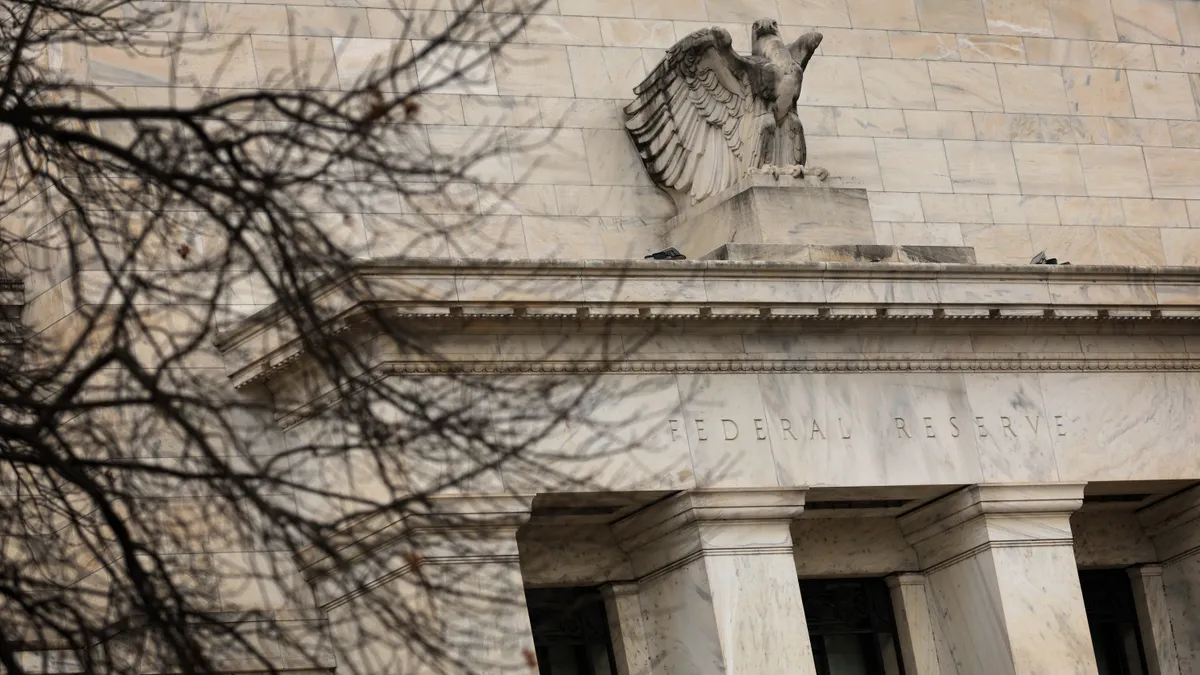The U.S. waste and recycling industry appears to be largely unscathed by the collapse of Silicon Valley Bank, according to initial reactions.
The failures of California-based SVB and New York-based Signature Bank over the last week set off a flurry of economic anxiety, though the worst concerns subsided as the federal government stepped in to ensure affected customers would have access to their funds. While the episode prompted a gut check among professionals in the waste industry, including a startup community known for its record of venture capital funding, sources reported minimal direct effects.
The industry's major publicly traded companies did not have exposure to the bank collapses, according to a Sunday research note by investment firm Stifel. The National Waste & Recycling Association, which represents those companies along with other private haulers, reported no immediate concerns on Monday.
While the note from Stifel Managing Director Michael E. Hoffman contemplated a range of possible ripple effects, none were considered certain or significant — including whether customers directly affected by the bank issues might struggle to pay for routine collection service.
“Remember the vast majority of these depositors were likely in commercial real estate office space that negotiated a whole building solid waste contract. The property manager is exposed. We have no idea what, if any, of these property managers are depositors at SVB, but the companies in our coverage have noted to us over the weekend they do not believe there is any direct risks from SVB,” the report stated.
SVB is known for investing in renewable energy and technology, making it a more attractive partner for certain tech-focused startups. Initial reporting did not confirm any exposure among sizable waste or recycling companies in that category.
Rheaply CEO Garry Cooper signed on to a Friday letter, led by startup accelerator Y Combinator, raising concern about access to funding — prior to the federal government stepping in — because “one-third of startups with exposure to SVB used SVB as their sole bank account.” Rheaply declined to comment on Monday about whether it had exposure.
Rubicon reported on Monday that it “does not hold any cash or cash equivalents at SVB, and it does not have any banking relationship with SVB.”
RoadRunner Recycling was also unaffected. “This is a very unfortunate situation for many startups focused on much-needed innovation and for institutions that have supported that innovation for decades. RoadRunner is not exposed to SVB or similar institutions — we have raised $149 million in capital from world-class investors, and continue to be fully operational,” said CEO Graham Rihn in a statement.
Dimension, a California-based startup that launched under the name Trash Warrior, said the same. CEO Lily Shen noted via email that the company had no exposure to SVB or First Republic Bank, the latter of which saw its stock price drop precipitously Monday prior to an early Tuesday rally.
EverestLabs, a MRF software company, also had no direct exposure. Chief Operating Officer Chris Jodoin said he doesn’t expect these issues will affect funding access for industry startups, especially those focused on automation, because investors view waste management as a "need to have, not a nice to have."
Closed Loop Partners — which invests in a range of industry startups, including through its own venture fund — had a similar view.
"Companies focused on circularity and recycling comprise a diverse ecosystem — they are located across the country, vary in size and operate across diverse sectors. These companies are investing in systems change and long-term sustainable growth, so are well-positioned to weather economic storms,” said Bea Miñana, communication project director, in a statement.
Stifel and others noted they will be watching to see if this has effects for other types of financing utilized by larger companies, with a particular focus on whether this changes the Federal Reserve’s interest rate hike strategy, but no immediate issues are expected. In the meantime, the waste startup community and its venture capital partners are also cautiously optimistic.
"I don't think anybody really knows what the full impact will be in the future. The venture community is vital for startups. I don't think that's going to go away,” said Jodoin. “Will there be a little blip? Will there be a pause? Maybe, but I don't think this is going to have even a medium-term impact on the investment into the space."
Additional reporting by Megan Quinn and Maria Rachal























